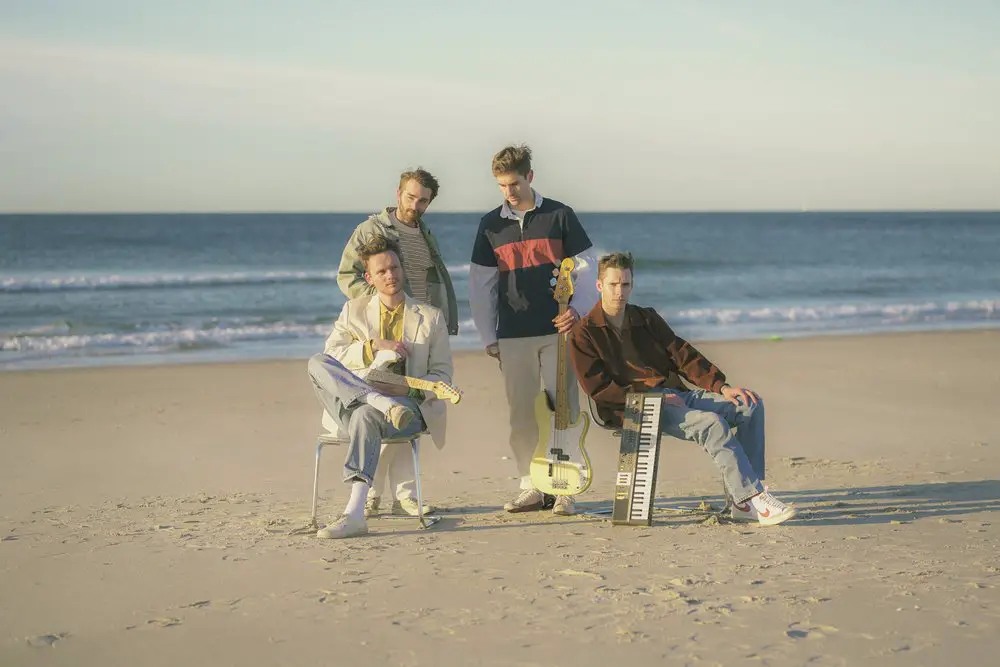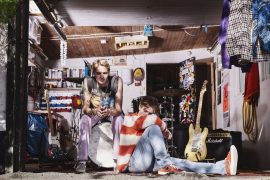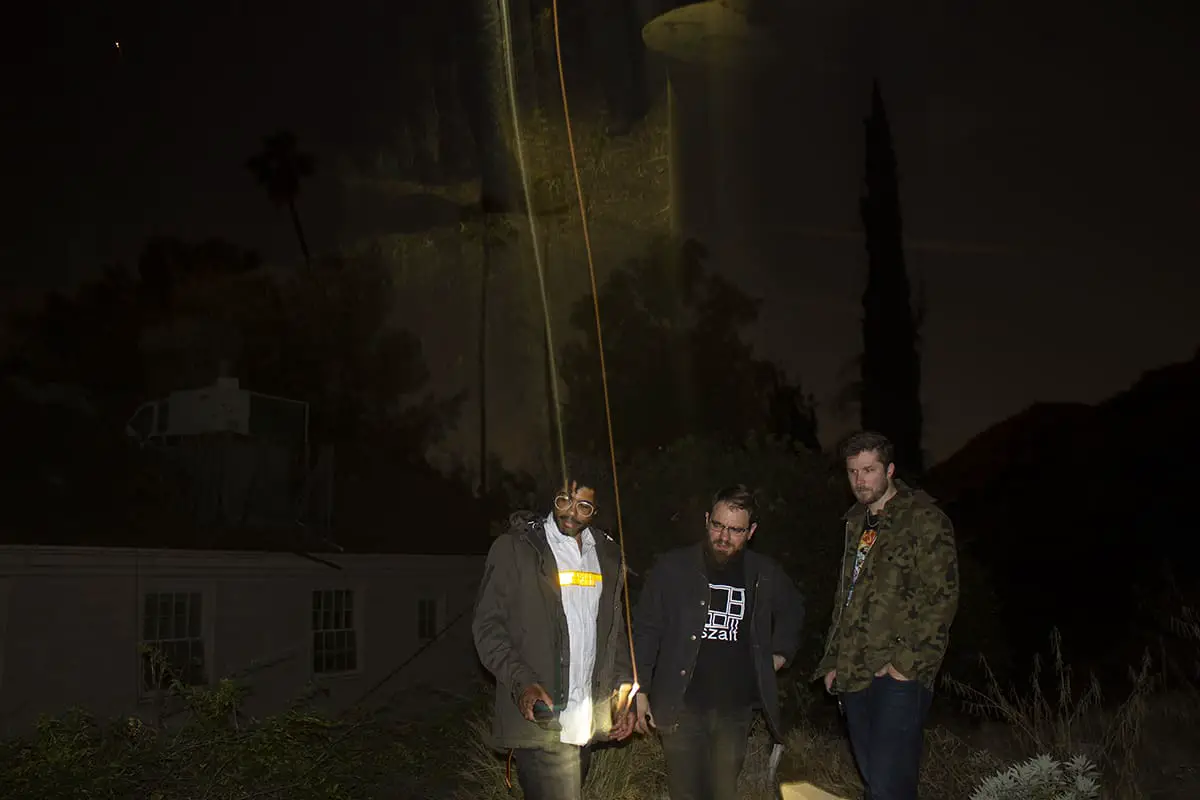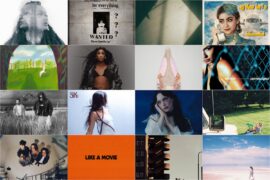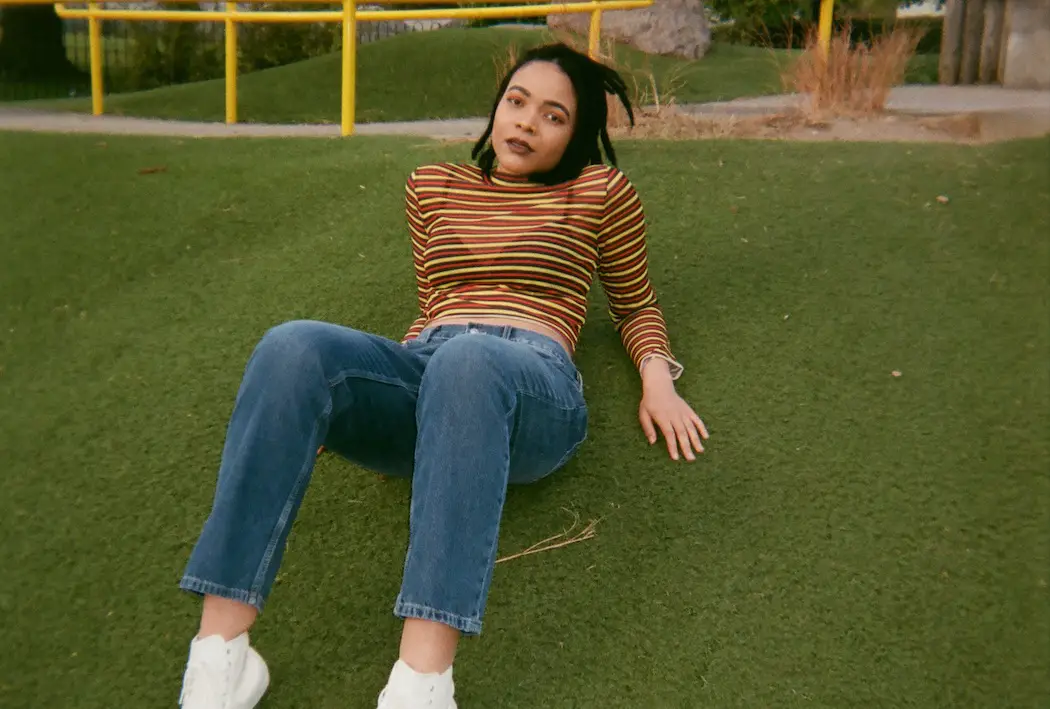Kevin Barnes honors themes of transformation, innovation, and complete absurdity in the newest of Montreal album, ‘Lady on the Cusp.’
Stream: ‘Soporific Cell’ – of Montreal
I really enjoy albums that have a lot of unpredictability in them, and it’s not just the same song or the same color palette for every single song.
A staple of the indie pop genre for the last three decades, of Montreal’s music takes self-deprecation and turns it into celebration.
Despite decades of making music, Kevin Barnes, the heart and soul of the project, brings a new twist to every album and each individual track. Their upcoming (nineteenth) studio album, Lady on the Cusp (out May 17, 2024 via Polyvinyl) promises to be another kaleidoscopic look at the inner workings of Barnes’ mind.
Barnes, who has been heavily influenced by over two years of living in Athens, Georgia, has recently pivoted to calling the snowy ridges of Vermont home. It was a difficult decision to leave Athens behind, and Barnes admits “the move took up a lot of bandwidth in my mind,” which ultimately influenced the upcoming album. This change inevitably pushed Barnes towards introspection and reflection, emphasizing themes of simultaneously returning and leaving home.
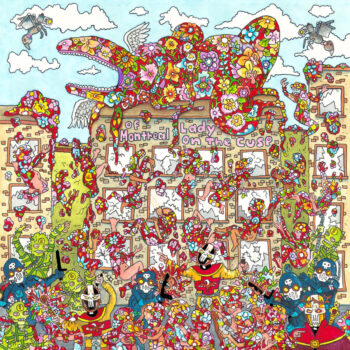
of Montreal, established in 1996, quickly rose to prominence within the indie music scene due to their eclectic amalgamations of glam rock, psychedelic pop, and electronica within what is, at times, a tamer genre. The band is a member of the Elephant Six Collective, a group that gains influence from the musical revolutions of the 1960s and became key players in the emergence of alternative and indie rock. Since their debut album Cherry Peel released in 1997, of Montreal have not slowed down, though their sound has shifted and evolved.
In Lady on the Cusp, Barnes takes this to a new level, telling Atwood Magazine, “[I was] using noise in ways that I haven’t always been interested in in the past.” Their album process is song by song – each track possessing an expansive landscape of music and lyricism that make this work unmistakably Barnes’.
“Yung Hearts Bleed Free” is the first released single from the album. It begins with disjointed, carefully crafted chimes of a synth, inviting you into Barnes’ alien soundscape. After the mounting intro, they hiss, “I am a creature of improbable leaps because / Yung hearts bleed for free.” With the chorus, Barnes’ pitched up voice eerily harmonizes along, almost demanding the listener concur. After paying respects to “sex maniacs,” the bridge brings the falsetto to the forefront, stating, “I wanna wrestle, wanna twist you like a pretzel all night.”
The second single, “Rude Girl on Rotation,” is more traditional, with standout moments of the band’s unique sound. The chorus comes in quickly as Barnes croons, “Stepping on scorpions to lose my erection,” illustrating a desperate, graphic image with matter-of-fact vocals and light acoustic backing.
Atwood Magazine caught up with Kevin Barnes to discuss Lady On the Cusp this past April, and they made it clear that the album’s defining trait was careful craft juxtaposed with absolute absurdity. “I pretty much played everything on the record,” Barnes explains, “building songs up one instrument at a time.” They tend to work in isolation, which gives each track a one-of-a-kind quality.
When I prod them to divulge their primary influences for this album, they admit, “I can never really put my finger on what would be the driving inspiration for anything.” It is evident that the common denominator of Barnes’ work is “unpredictability […] where it’s not the same color palette for every song.”
Barnes is greatly influenced by writing, both their own and others’. “[Writing] is a huge part of what I do,” they tell me, “but I don’t think of [the lyrics] as more important than the music.” For Barnes, every aspect of a track has equal value, from the invigorating chorus to the tiniest trembles of percussion.
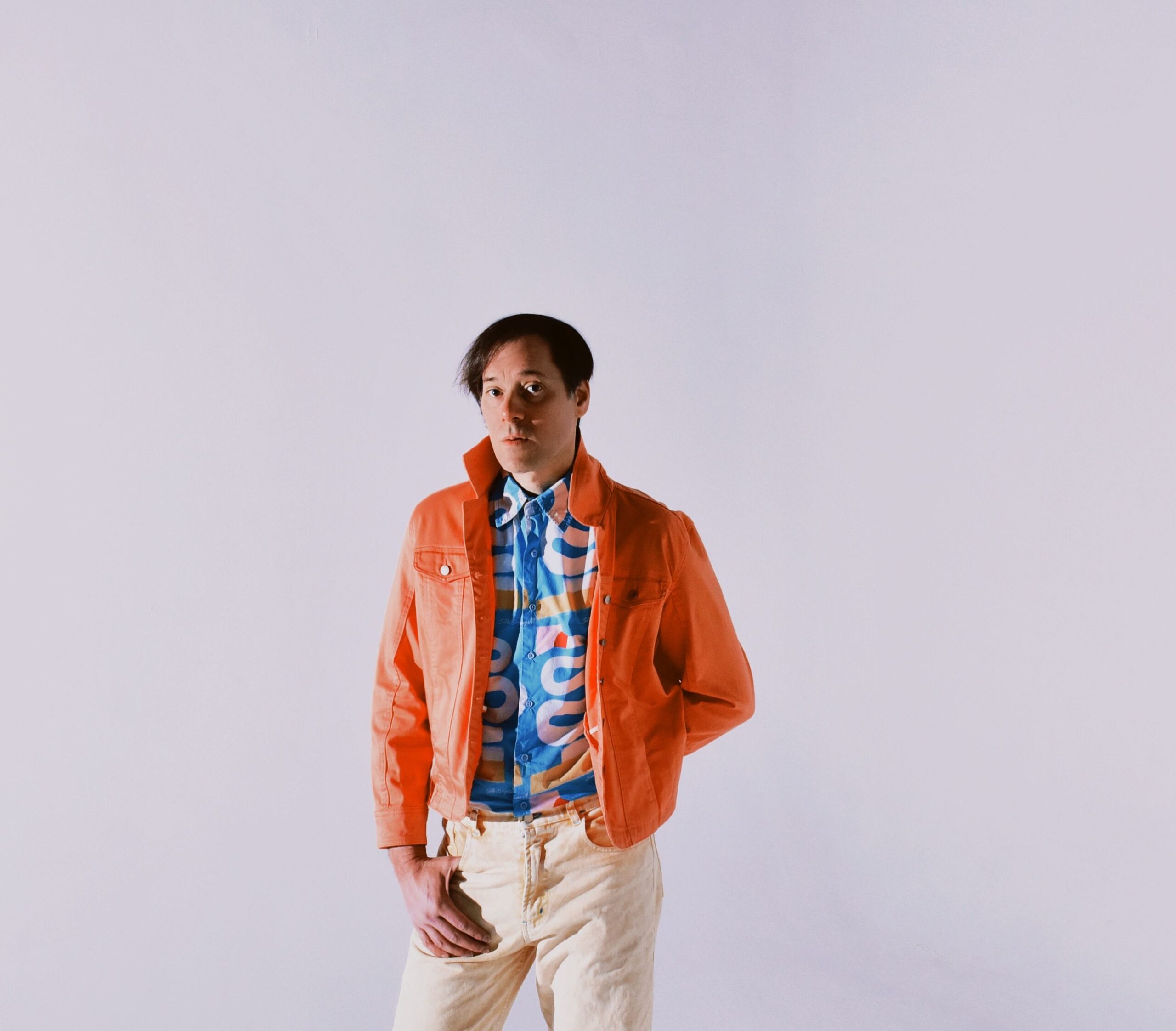
There is a deliberation in of Montreal’s work that makes each song feel like its own world, which in turn makes their records galactic.
As Barnes puts it, “I see myself as a pirate in a lot of ways.”
of Montreal’s tour kicks off May 31 in Athens, Georgia, which Barnes says is “a surreal feeling.”
Though they plan to play both old and new music, Barnes admits they prefer playing new tracks as the old songs are guaranteed to get a good reaction. With new ones, it’s always a surprise “how [it will] resonate…with people,” and Barnes likes to be kept on their toes.
Fans should expect a rollercoaster of an album and a tour with surprises around every corner.
— —
:: stream/purchase Lady on the Cusp here ::
:: connect with of Montreal here ::
“Rude Girl on Rotation” – of Montreal
A CONVERSATION WITH OF MONTREAL
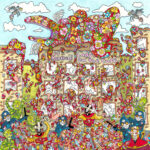
Atwood Magazine: How does it feel to be kicking off your tour in Athens after the move?
Kevin Barnes: It’s always interesting to go back to a place where you once lived, and you don’t live there anymore. You don’t have a house there anymore. I’ve actually already experienced that once because we played in Athens in September. It’s pretty weird. Just because I lived there for like, 25 years or something. It’s like a surreal feeling. To be back [with] so many memories of the place and not to belong to the place anymore. It’s cool because my brother still lives there, I still have a ton of friends that live there, we actually rehearse for the tours still in Athens. So we still have a lot of connections there.
Can you talk to us a little more about how your move to Vermont influenced this album?
Kevin Barnes: My partner, and I, Christina, we started going up to visit Vermont about two years ago. I really tried to wrap my head around the possibility of moving up here, uprooting my life and all that would be required. So we came up for all the different seasons and kind of experienced it that way. I met a bunch of people through her and sort of realized, okay, I could do this. I think that me thinking about the move probably took up a lot of bandwidth in my mind, and probably influenced the record. There’s definitely some references to Vermont on the record. But the record was made in Athens.
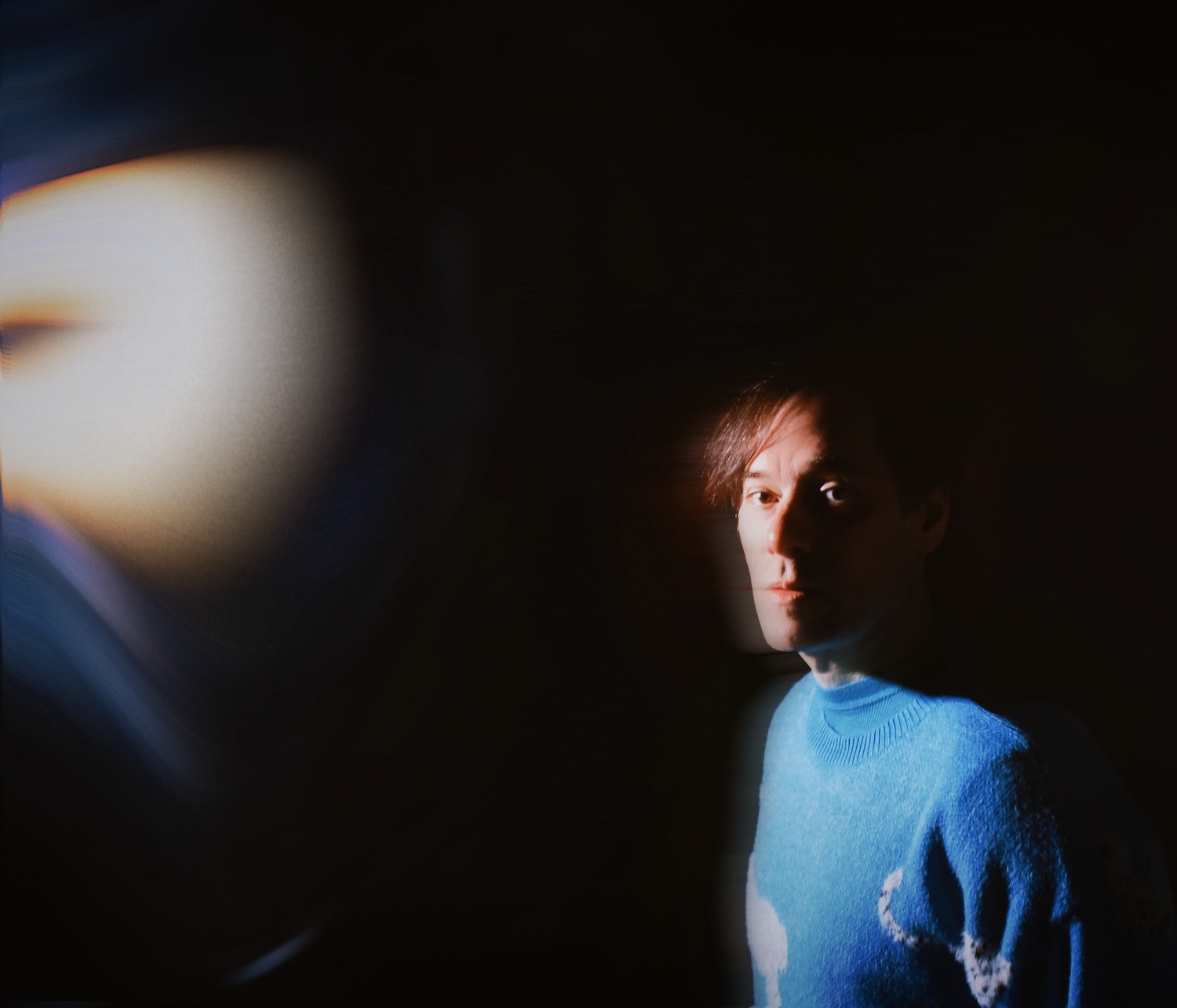
Your last two albums were written with influences of isolation, both self imposed, and then unexpected. Would you characterize Lady On the Cusp to have a similar isolated vibe, due to it being primarily being pioneered by you? Or was it a collaborative effort?
Kevin Barnes: I pretty much played everything on the record, with the exception of “Suffer” [which] had Clayton [Rychlik] on drums and JoJo [Glidewell] on piano. There’s another song that JoJo played saxophone on, but for the most part, it was just me by myself in the studio, working the way I have many times in the past, building songs up one instrument at a time. I think there’s an inherent isolation in that process when you work that way. Also, when I was living in Athens, I wasn’t really socializing very often. I tend to lean more towards solitary time than social time. So I kind of feel like all the records have that feeling of isolation, even though a lot of it is by choice.
What are your primary musical influences for this album? Do you find yourself leaning into the sound of the past and the Elephant 6 collective or gravitating towards the more upbeat dance mix vibe of your recent albums?
Kevin Barnes: It’s always going to be a combination of all the different things that I like listening to and feel inspired by. So some of that will be similar to the stuff that I listened to 20 years ago and some of it will be more contemporary influences. It’s always all over the place, I can never really put my finger on what would be the driving inspiration for anything.
For this record, it’s definitely all over the place as well. I think I just really like variety. I really enjoy albums that have a lot of unpredictability in them, and it’s not just the same song or the same color palette for every single song. I like albums that have a lot of different types of experimenting with different types of genres and different types of instrumentation. So it’s kind of hard to say there’s just one or two things that were inspiring me, but definitely funkier stuff.
I really enjoy albums that have a lot of unpredictability in them, and it’s not just the same song or the same color palette for every single song.
So would you classify the album as a deconstruction of previous works? Or construction of a new sound?
Kevin Barnes: I don’t know if I would use either of those two [descriptors]. I wasn’t trying to reinvent the wheel or whatever, I was just kind of making things that are organically happening in a way. I guess there were some songs, like “2 Depressed 2 F*,” for example, where I was experimenting with more abstract sounds that aren’t really used in pop music very often. Trying to work those sounds into a pop type of song was a fun challenge for me, and [I was] using noise in ways that I haven’t always been interested in in the past.
If I were to go song by song, or even song section by song section, I would be able to say, “That was inspired by this.” But I don’t know if there is an overreaching or universal quality to the whole record that would [lead me to] say it’s a deconstruction or construction.
Overall, how have releases changed over time for you with the prevalence of streaming services and mp3?
Kevin Barnes: We still manufacture records and CDs and cassettes for all the albums so we haven’t gone fully digital. But I’m sure that the vast majority of people who listen to [the records] listen to it on their phones or computers. It’s kind of cool in the sense that there’s an immediacy to that and there’s apps that you can get to track how many times people have listened to a song. I don’t really spend that much time thinking about that or researching that or worrying about it, but I do think it’s cool that you can just upload a song and be like, “Hey, everybody, I just uploaded a song.” You don’t have to manufacture a physical version of the thing and then find distribution for it and hope that somebody has 10 extra dollars that they want to spend on you.
I think in that sense, things have changed a lot, but then I also wonder if [physical records] had a more mystical and magical quality to [them]. And now I feel like music has become a bit devalued because of that fact. Obviously, listening to something over your iPhone speaker or your laptop speakers is really not the best way to hear it. But you can do that and a lot of people do that. It’s interesting, knowing that there’s good and bad to the current situation.
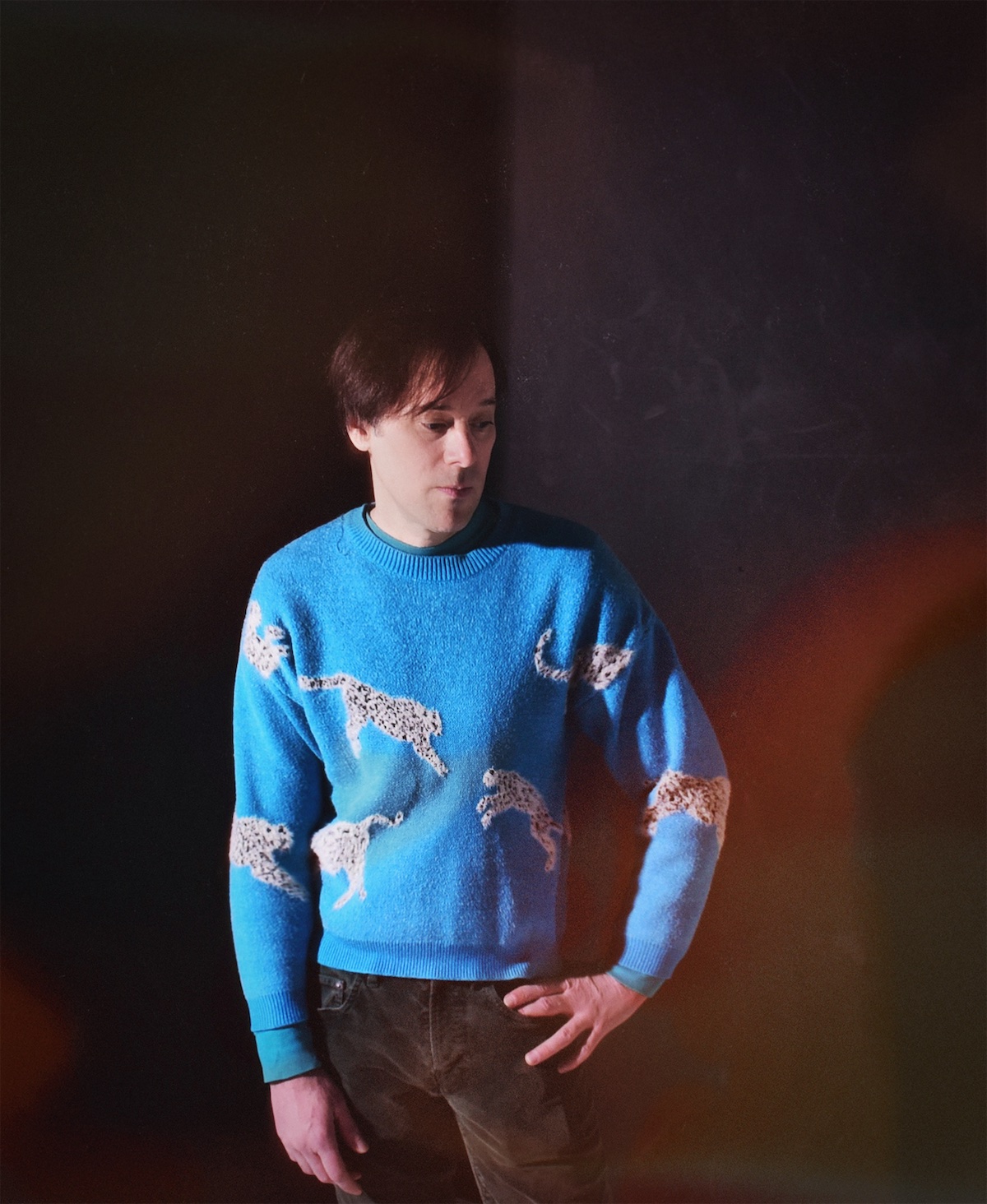
How does being a writer influence your music and your process?
Kevin Barnes: I value the written word. I read a lot and think often about what people were able to accomplish without music just through writing. I want there to be that element in what I do, and it’s a huge part of what I do. But I don’t think of [the lyrics] as more important than the music because [of] the way I listen to music. I often will zone out on the lyrics if I think the music is really boring. Music has to be interesting to me for me to really think about what they’re saying, but I’m trying to get better about that. I know that a lot of people [aren’t] really necessarily obsessed with music in the way that I am. [For them,] the lyrics are the most important thing and so they don’t spend as much time with [the music], or they’re not capable of making more interesting music, or they’re satisfied with generic chord progressions, because that’s not the focus of what they want to do. I’m trying to get better at ignoring in general, I’m trying to get better about zooming in on the things that are cool, [the things] that interest me, and zooming out from the things that bore me. My whole life, I feel like I zoom in on the things that I think suck, and then it makes me not appreciate anything else about it.
How do the music video’s visuals align with the intended image of this album?
Kevin Barnes: That’s very much the director’s vision. She’s really a cool artist that we started working with on the last record, and I thought it would be cool to continue that collaboration. As far as visuals go, I tend to leave that up to other people. Often my brother does a lot of the visual stuff, especially during tours with what kind of things we project and what costuming we have. The performance side of things often will leave up to David [Barnes] to handle, and often with videos, I’ve tried to find someone that I like and ask them to do it because it’s not really the thing that I’m drawn to.
I value the written word. I read a lot and think often about what people were able to accomplish without music just through writing.
What are you most looking forward to with this tour?
Kevin Barnes: The thing I’m most looking forward to is hanging out with everybody in the touring group, because I haven’t seen a lot of them in a while. It’s such a fun hang to have every day, because we travel on the tour bus. We all climb in there. It’s kind of like summer camp in a way, we all have our bunks and we have a communal area that everyone hangs out in. It’s a very different style of living, and it’s fun to do that for a couple of months out of the year.
As far as the performance goes, a couple tours ago [we] started incorporating some more older material, like really early stuff into the set, and that’s been fun. I want there to be an element of spontaneity and improvisation to this tour. So probably going to be doing that, try to do some different things every night. And then also still have a lot of stuff that we have [already] done as far as having a performance artist on stage and having projections and putting a lot of time into the pre-production of the tours, just to put together a really fun, outrageous event for everybody.
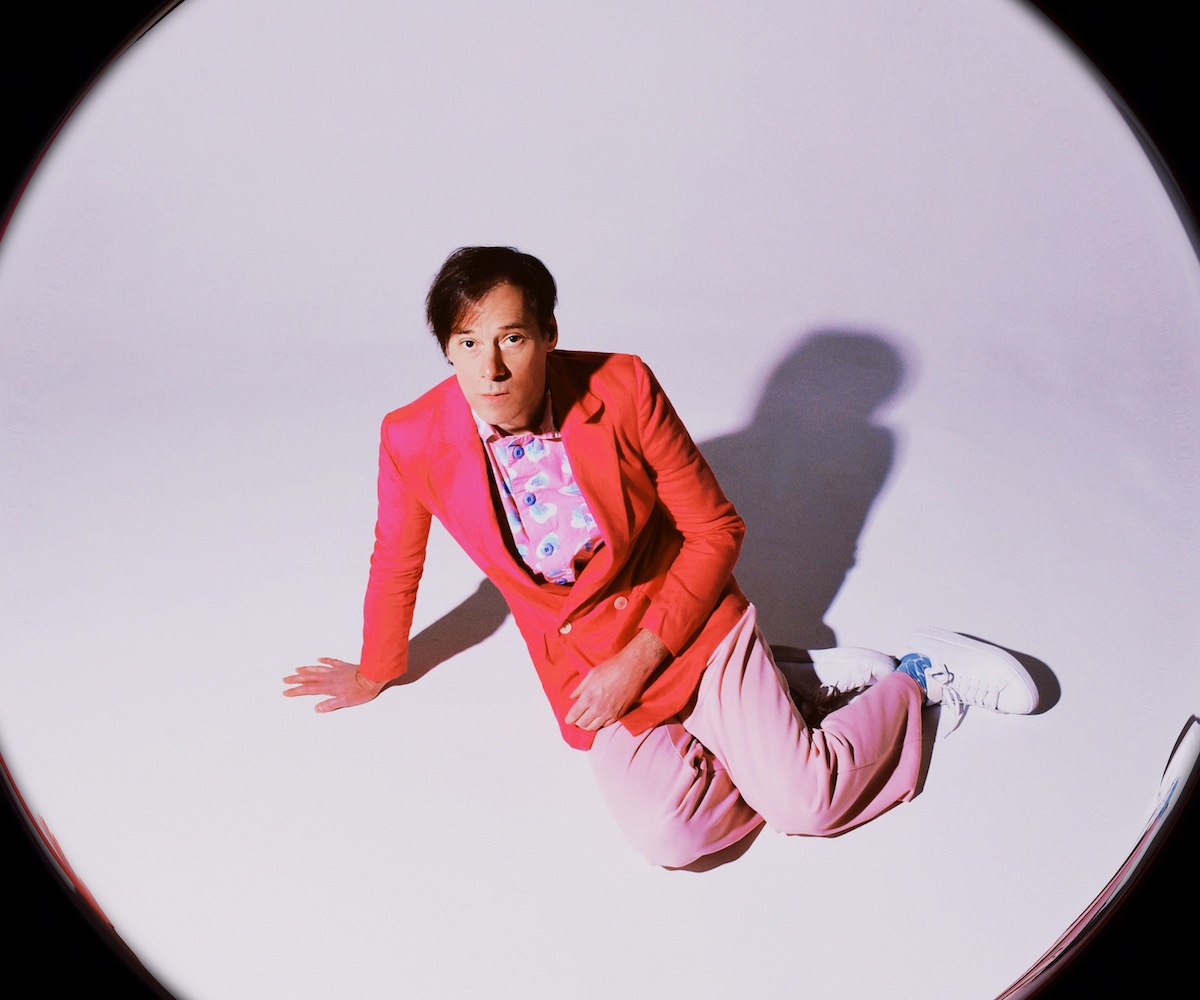
I want there to be an element of spontaneity and improvisation to this tour.
How does touring a new album change your relationship with the album?
Kevin Barnes: When you put out a new album, it’s obvious that [new] material is the most exciting, or for me personally. But I understand that we’ve been around for a long time, and we keep putting out albums [so] it’s hard to keep up. We don’t want to just play new material, but usually we get a decent reaction from the new material. It’s cool to see what people seem to be vibing with and what they aren’t. You just sort of take a leap of faith that people have checked out the new album, so you’re not really boring people. It gives you kind of a sense of, not necessarily the quality of the work, but at least how it’s resonating with people.
It’s definitely a very good feeling to look out in the audience and see someone singing along to one of the new songs. That feels better just because [of] the way I am, I’m a freak about new things and seeking out and valuing new things over things that I’ve already experienced. That’s not freaky; that’s probably what everybody’s like. If we play something like from “Hissing Fauna,” for example, we know [that] we [have] played the songs like a zillion times and they always get a good reaction. I guess for me, it’s more exciting to take on something that we haven’t done before. So playing the new material definitely satisfies that desire.
— —
:: stream/purchase Lady on the Cusp here ::
:: connect with of Montreal here ::
— — — —

Connect to of Montreal on
Facebook, Twitter, YouTube, Instagram
Discover new music on Atwood Magazine
© Shervin Lainez
:: Stream of Montreal ::

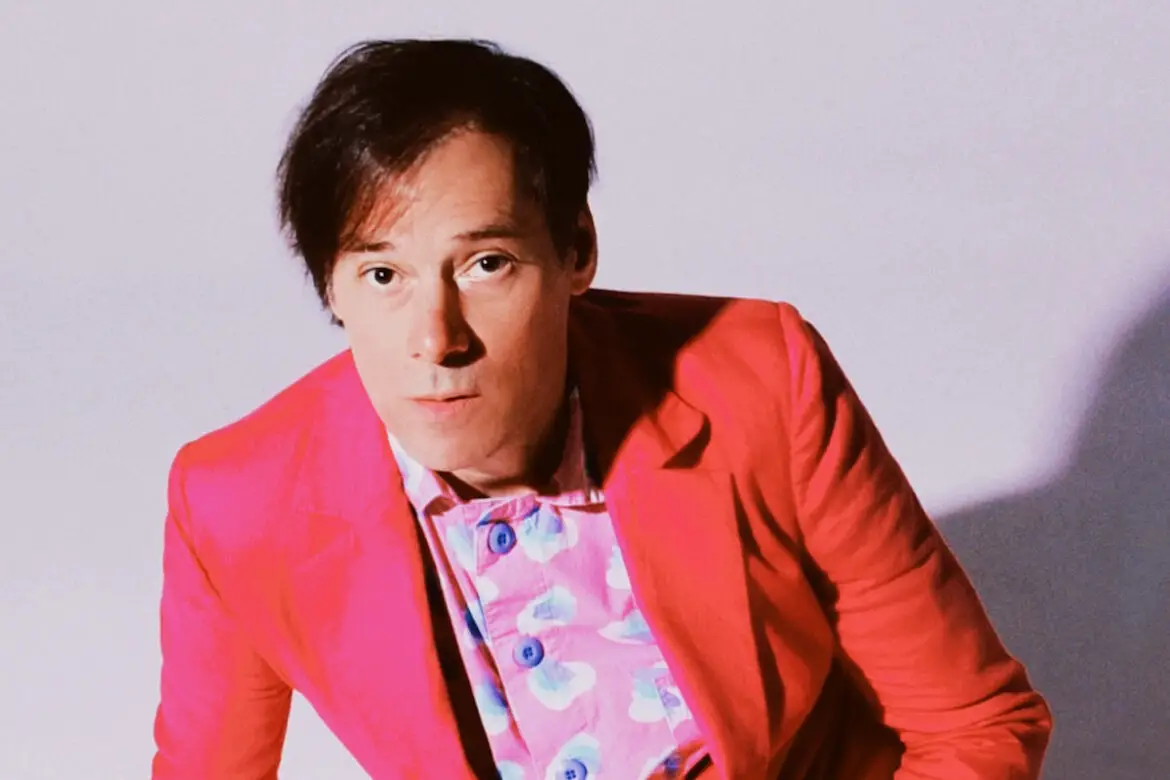
 © Shervin Lainez
© Shervin Lainez
